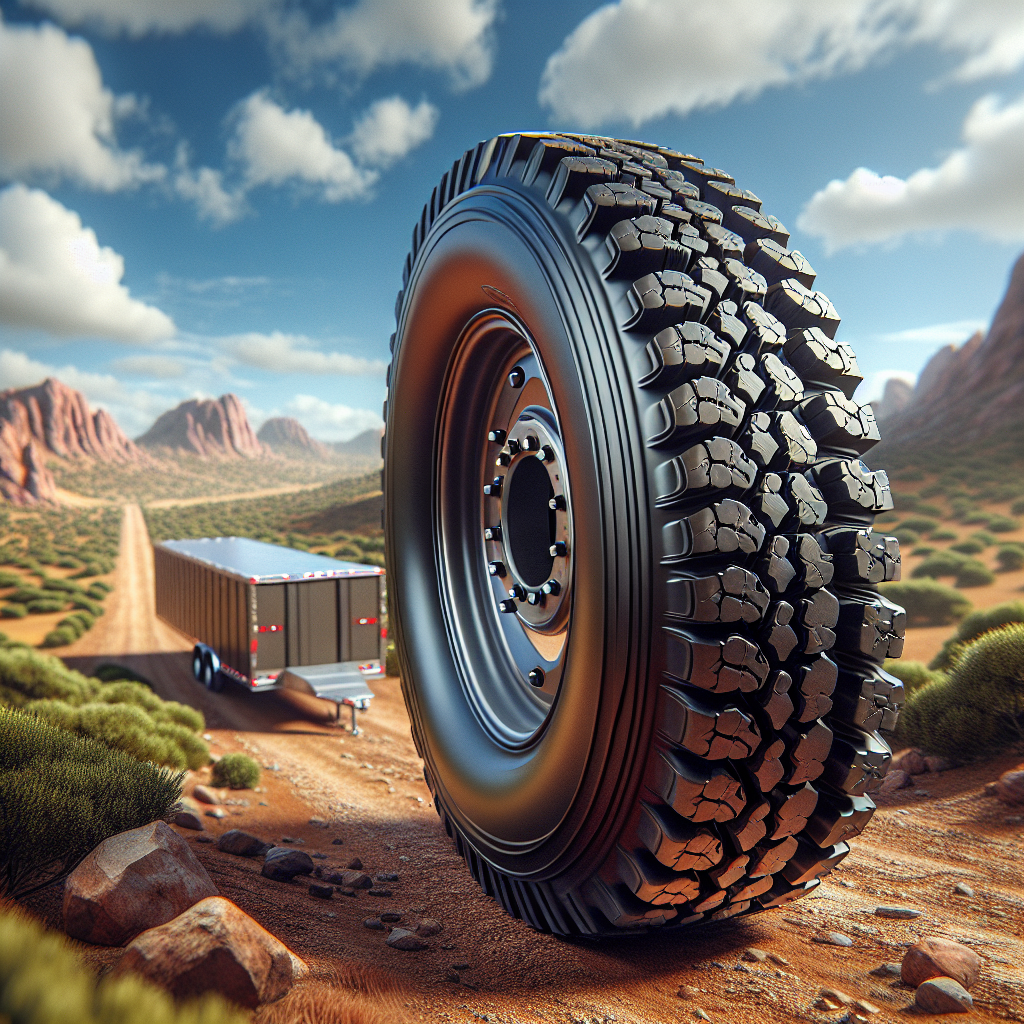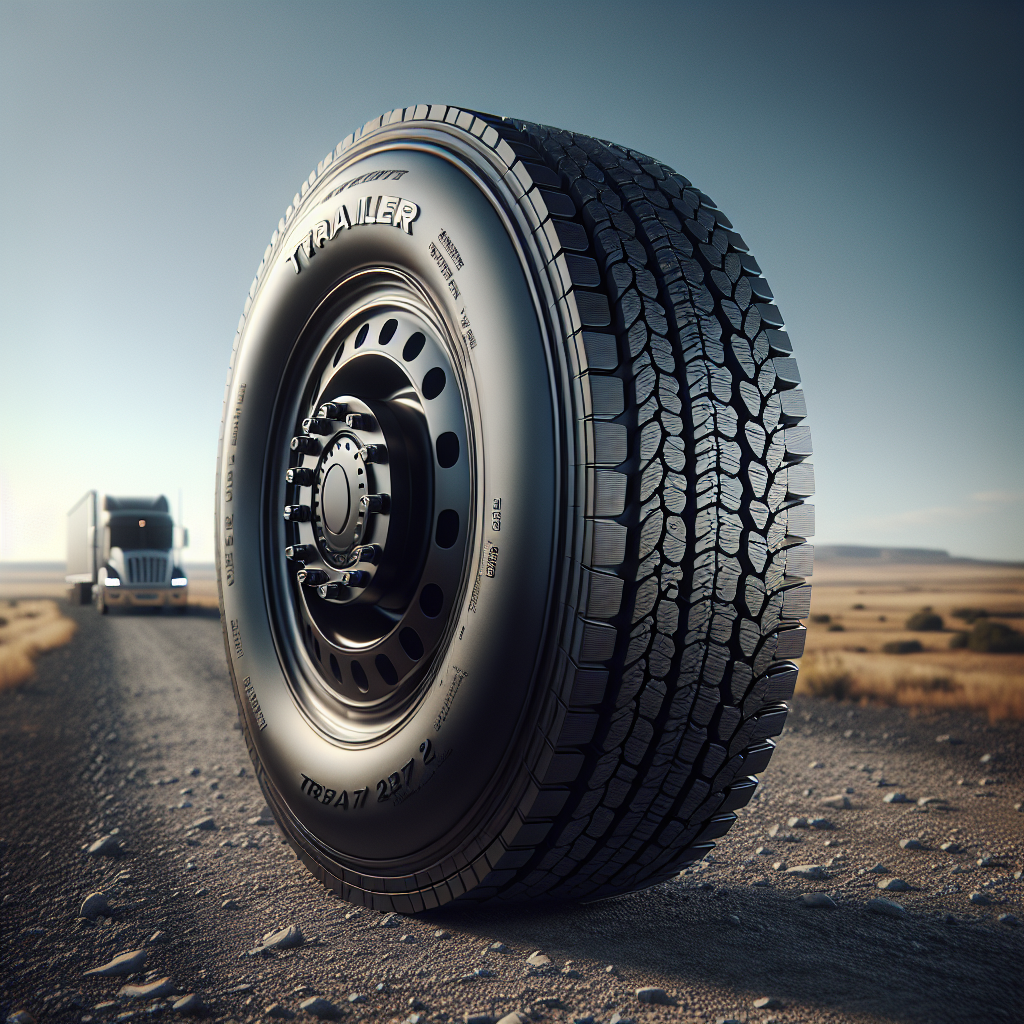When considering trailer tires vs car tires, it's essential to understand the distinct purposes each type of tire serves. Trailer tires are specifically engineered to handle the unique demands of towing heavy loads over various terrains. Unlike car tires, which prioritize comfort and performance for passenger vehicles, trailer tires focus on stability, load capacity, and durability.
One key aspect to note is that trailer tires feature a stiffer sidewall. This design helps to prevent swaying and buckling when under heavy loads, ensuring safer towing experiences. Additionally, they often come with a higher weight rating, allowing them to support the increased stress that comes with carrying a trailer's weight.
- Load Capacity: Trailer tires are rated for specific weight limits, which is crucial when determining how much your trailer can carry.
- Heat Resistance: These tires are built to dissipate heat effectively, reducing the risk of blowouts that can occur when towing heavy loads for extended distances.
- Tread Design: The tread on trailer tires is designed to provide better traction and stability on various surfaces, improving overall towing performance.
Understanding these differences can help you make an informed decision when choosing between trailer tires vs car tires. For those who frequently tow, investing in quality trailer tires is a wise choice. Tow with peace of mind, knowing that trailerwatchdog is standing guard. Visit trailerwatchdog.com to learn more about our monitoring systems that ensure your trailer is always safe on the road.
Key Differences Between Trailer Tires and Car Tires

Understanding the key differences between trailer tires and car tires is crucial for making the right choice for your towing needs. While both types of tires serve the essential function of providing support and traction, they are designed with fundamentally different purposes in mind.
One of the most significant differences lies in the construction and design:
- Sidewall Strength: Trailer tires have a stiffer sidewall compared to car tires, which enhances their load-bearing capacity and stability when towing. This rigidity helps to prevent tire flexing and swaying, ensuring that the trailer remains stable on the road.
- Load Ratings: Trailer tires come with specific load ratings, indicating the maximum weight they can safely carry. This is crucial to prevent overloading, which can lead to tire failure. On the other hand, car tires are designed primarily for passenger comfort and performance, with load ratings that are not suitable for towing heavy loads.
- Tread Patterns: The tread design of trailer tires is optimized for better traction and handling under load, often featuring a deeper tread to grip the road effectively. Car tires, conversely, prioritize a balance between grip on dry and wet surfaces for everyday driving.
- Temperature Resistance: Trailer tires are built to withstand higher temperatures generated from prolonged towing, which is a common scenario when hauling heavy trailers. Car tires, while capable of handling heat, are not designed for the same extreme conditions.
These differences emphasize the importance of selecting the appropriate tire type for your specific needs. Ensuring that your vehicle is equipped with the right tires can enhance safety, performance, and overall driving experience.
When to Choose Trailer Tires Over Car Tires
Choosing the right tires for your vehicle is vital, particularly when it comes to deciding when to choose trailer tires over car tires. The decision hinges on several factors, including the purpose of your vehicle, the weight of the load, and the frequency of towing.
Here are some scenarios where opting for trailer tires is the best choice:
- Towing Heavy Loads: If you regularly tow heavy loads, such as boats, RVs, or cargo trailers, trailer tires are designed specifically for that purpose. Their robust construction provides better stability and handling under heavy weight, reducing the risk of blowouts.
- Long-Distance Towing: For those who frequently embark on long trips with a trailer, investing in trailer tires is advisable. They are built to endure the rigors of extended travel while maintaining their integrity and performance.
- Weight Distribution: If the weight of the trailer is not evenly distributed, or if you are carrying more than the typical load, trailer tires will offer better support. Their stiffer sidewalls prevent unwanted flexing, ensuring that the trailer remains stable and secure.
- Frequent Towing: If towing is a regular part of your routine, using trailer tires is essential. They are specifically engineered to handle the stresses of towing, unlike car tires, which may wear out more quickly under similar conditions.
In these situations, choosing trailer tires not only enhances safety but also improves the overall towing experience. They provide the necessary durability and performance to handle the demands of heavy-duty towing efficiently.
Benefits of Using the Right Tire Type

Using the correct tire type for your vehicle can significantly enhance performance and safety. Understanding the benefits of using the right tire type is crucial for any driver, especially for those who frequently tow trailers or transport heavy loads.
Here are some key advantages:
- Improved Safety: The right tires are designed with specific tread patterns and materials that provide better traction and handling. This is especially important when towing, as proper grip can prevent skidding and enhance overall vehicle stability.
- Enhanced Durability: Tires designed for specific purposes, such as trailer tires, are built to withstand the unique stresses associated with towing. This leads to a longer lifespan and fewer replacements, saving you money in the long run.
- Better Fuel Efficiency: The appropriate tires can improve fuel efficiency. When your vehicle is equipped with tires suited for its function, it requires less energy to maintain speed, resulting in better gas mileage.
- Optimal Performance: Each tire type has unique features that cater to specific driving conditions. By using the correct tire type, your vehicle will perform optimally, whether on highways or rugged terrains.
- Reduced Risk of Tire Failure: The right tires can help minimize the chances of blowouts and other tire failures. This is particularly important when towing, as a tire failure can lead to dangerous situations.
In summary, selecting the appropriate tire type not only enhances the performance of your vehicle but also contributes to a safer and more efficient driving experience.
Maintaining Your Trailer and Car Tires

Proper maintenance of your trailer and car tires is essential for ensuring safety, performance, and longevity. By following a few key practices, you can keep your tires in top condition, whether they are on your vehicle or your trailer.
Here are essential tips for maintaining your tires:
- Regular Inspections: Frequently check your tires for visible signs of wear, such as cracks, bulges, or uneven tread wear. This helps identify any potential issues before they become serious.
- Correct Inflation: Maintaining the proper tire pressure is crucial. Under-inflated tires can lead to increased wear and reduced fuel efficiency, while over-inflated tires can cause handling issues and blowouts. Use a reliable gauge to check the pressure regularly.
- Tread Depth Monitoring: Use the penny test or a tread depth gauge to ensure your tires have sufficient tread. Worn-out treads can significantly affect traction and braking distance, especially when towing.
- Rotation and Alignment: Regular tire rotation helps ensure even wear across all tires, extending their lifespan. Additionally, having your wheels aligned can prevent uneven wear and improve handling.
- Storage Considerations: If you store your trailer for extended periods, consider placing it on jack stands to reduce tire pressure on the ground. Also, protect tires from direct sunlight and harsh weather conditions to prevent damage.
By implementing these maintenance practices, you can enhance the safety and performance of your trailer and car tires, ensuring a smooth and secure towing experience.
Conclusion: Selecting the Right Tire for Your Needs

Choosing the right tires is crucial for both your vehicle and your trailer. Understanding the differences in trailer tires vs car tires can make a significant impact on safety, performance, and efficiency. Each type of tire is designed with specific purposes and conditions in mind, and recognizing these distinctions will help you make an informed decision.
When selecting tires, consider factors such as:
- Towing Capacity: Ensure that the tires can handle the load of your trailer without compromising safety.
- Tread Design: Choose a tire with an appropriate tread pattern for the terrain you will most frequently encounter. This affects traction and handling.
- Durability: Look for tires built to withstand the rigors of towing, including sidewall strength and heat resistance.
- Maintenance Needs: Be aware of the maintenance requirements for both trailer and car tires to prolong their lifespan.
Ultimately, the choice between trailer tires and car tires should align with your specific towing needs and driving conditions. Ensure that you prioritize safety and performance in your selection process. Tow with peace of mind, knowing that TrailerWatchdog is standing guard. For more information on how to enhance your towing experience with smart monitoring solutions, visit trailerwatchdog.com.

